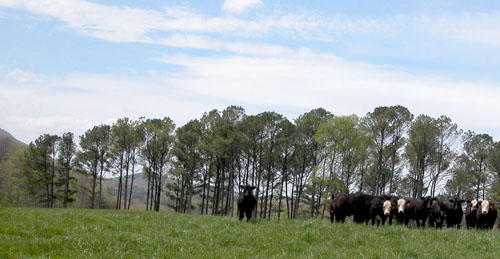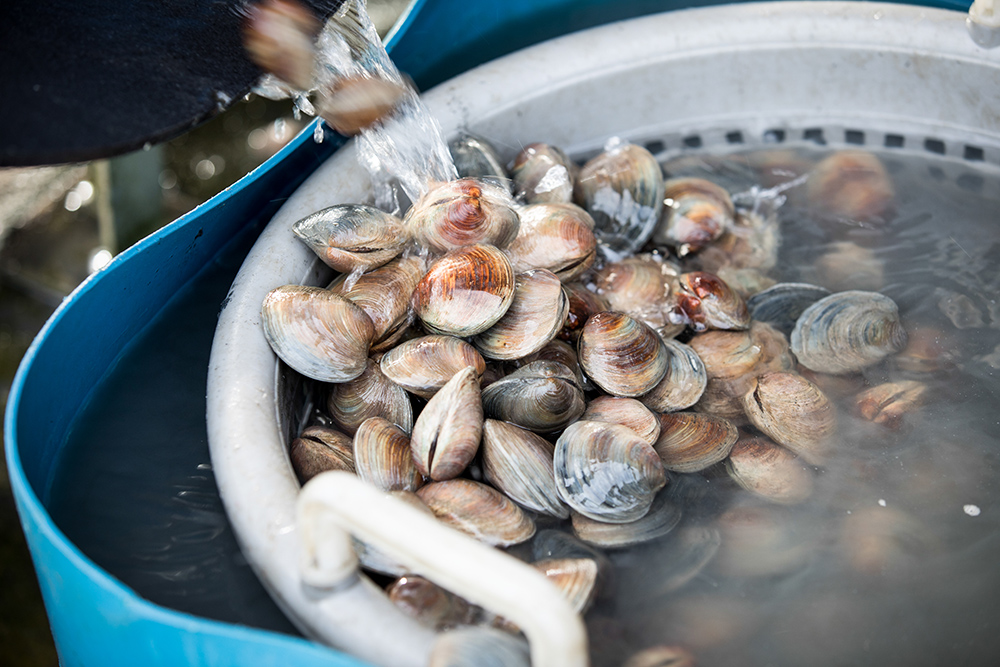When the first frost hits, beef producers should be concerned for grazing cattle if the field contains johnsongrass. Cattle may suffer from prussic acid poisoning caused by this grass.
In normal years producers don’t have to worry about this problem, but Georgia experienced a lot of rain this summer. Repeated grazing by cattle prevents johnsongrass from getting established. But the abundant rainfall may have caused some situations where the grass grew faster than the cattle could eat it. It is also prevalent in many hayfields, and some farmers may allow cattle to graze those fields this fall. Therefore producers need to use caution.
Cyanide-producing compounds in living plant cells are converted to prussic acid when cells are crushed or otherwise ruptured. The prussic acid potential of plants is affected by species and variety, weather, soil fertility and stage of plant growth. Plants of the sorghum group, like johnsongrass and leaves of wild cherry trees, have the potential to produce toxic levels of prussic acid, especially when stressed during cold temperatures.
Prussic acid is one of the most potent toxins in nature. As ruminants like cows and goats consume plant materials containing cyanide-producing compounds, prussic acid is liberated in the rumen, absorbed into the bloodstream and carried to body tissues where it interferes with oxygen usage.
When lethal amounts are consumed, animals can die without visible symptoms of poisoning. Symptoms from smaller amounts include labored breathing, irregular pulse, frothing at the mouth and staggering.
University of Georgia Extension offers the following suggestions for farmers to help their cattle avoid prussic acid poisoning:
- If possible, remove cattle from fields containing johnsongrass until the first hard frost, when the grass is dry (the toxin usually dissipates within 48 hours).
- Do not allow cattle to graze for two weeks after a non-killing frost.
- Do not allow cattle to graze at night when frost is likely.
- Allow hay to cure properly to remove the danger of prussic acid poisoning from hay containing johnsongrass.
Watch cattle closely if you have to leave them exposed to johnsongrass. Of course, you can’t save a dead animal, but those displaying symptoms prior to death can be treated. A proprietary sodium nitrite-sodium thiosulfate combination can be administered and repeated once if necessary. It must be injected intravenously and very slowly. The dosage and method are critical, so have your veterinarian’s emergency phone number close by. Most animals that live two hours after onset of symptoms will recover.
For more information contact your local UGA Extension agent at 1-800-ASK-UGA1.








